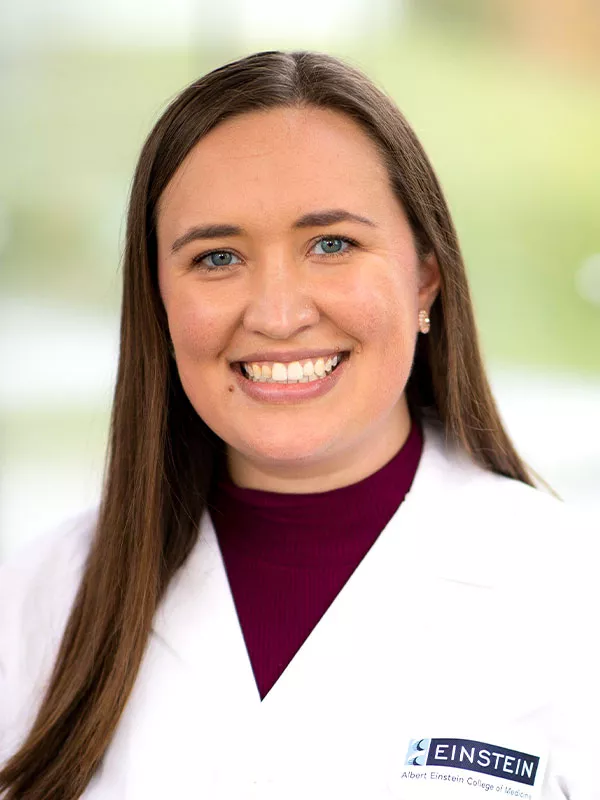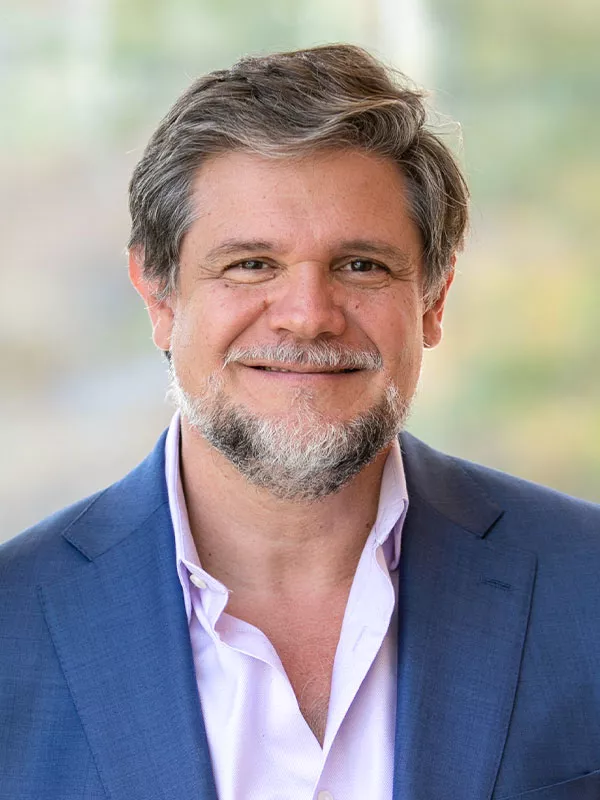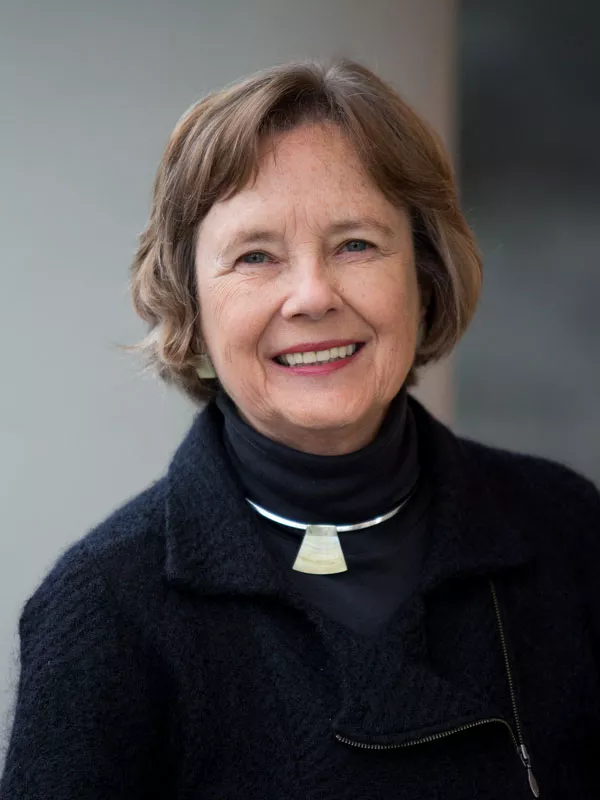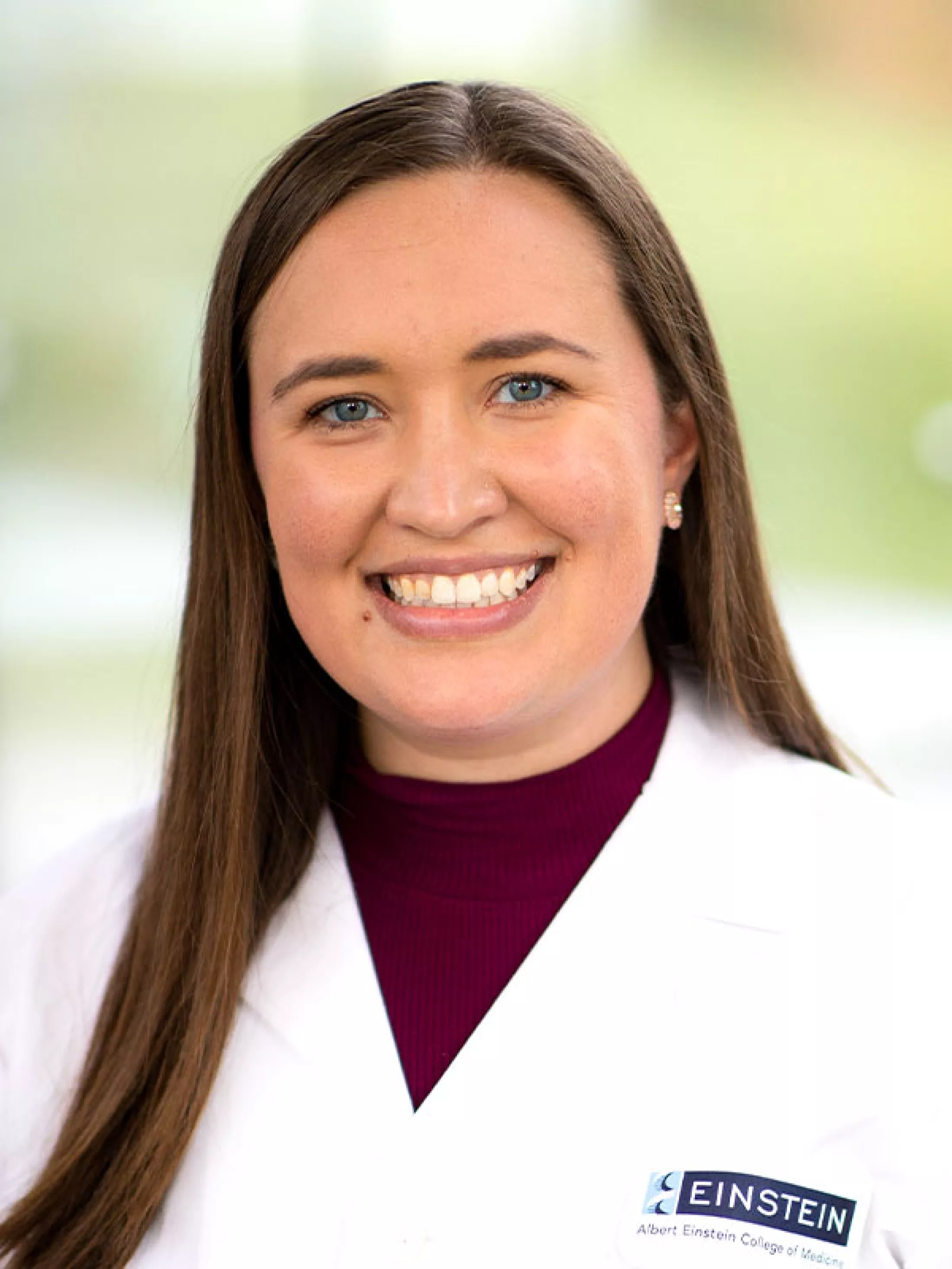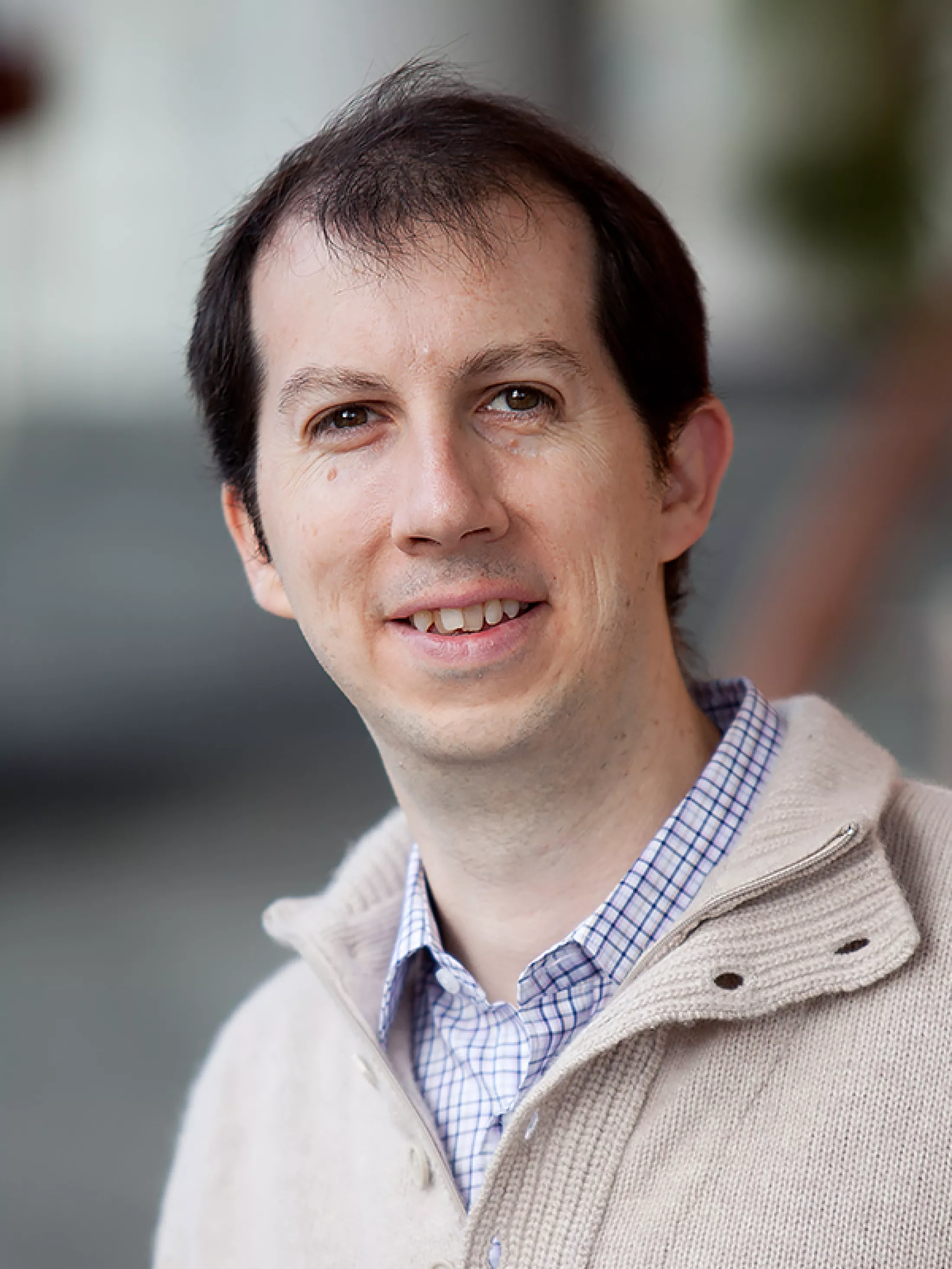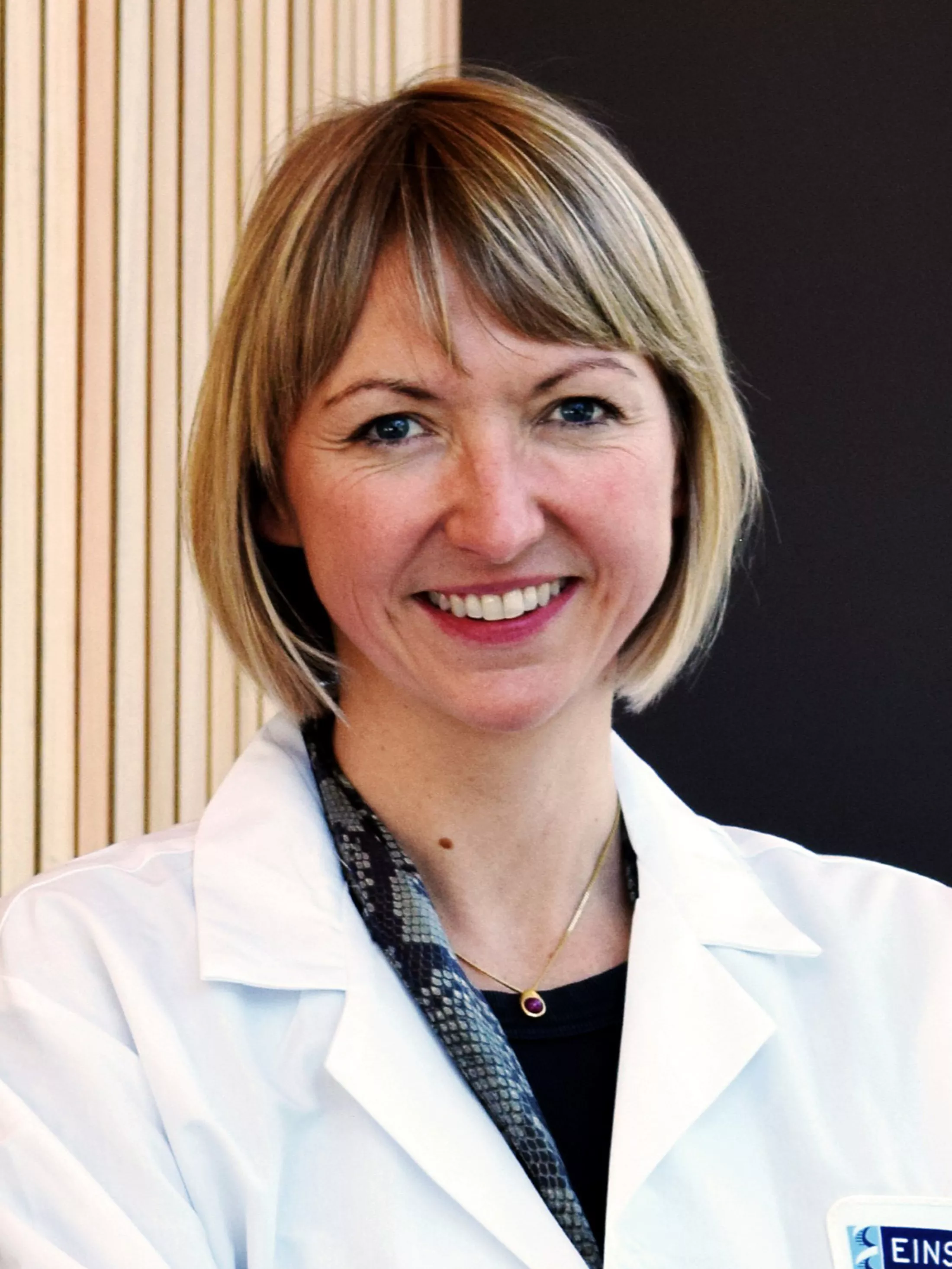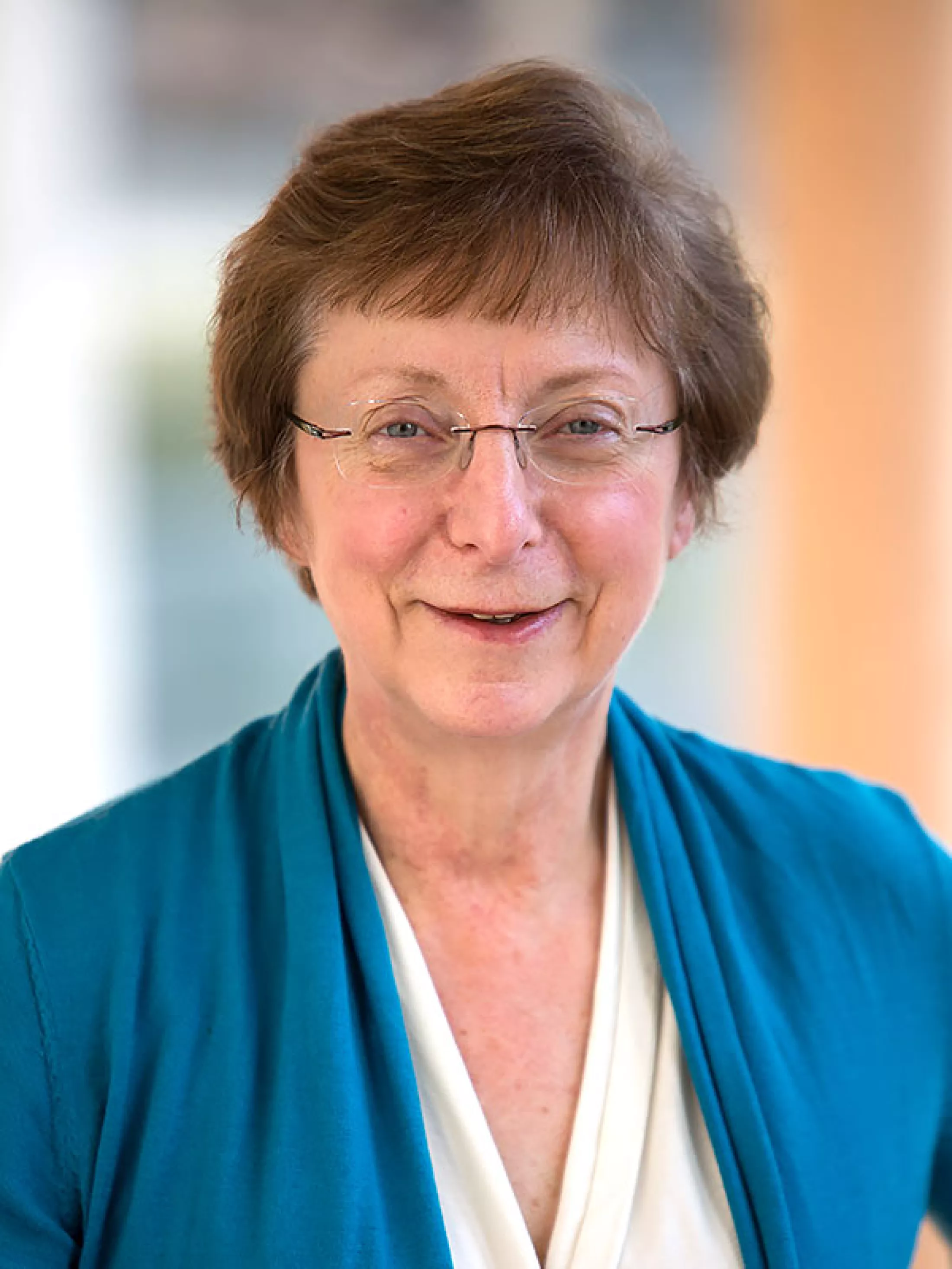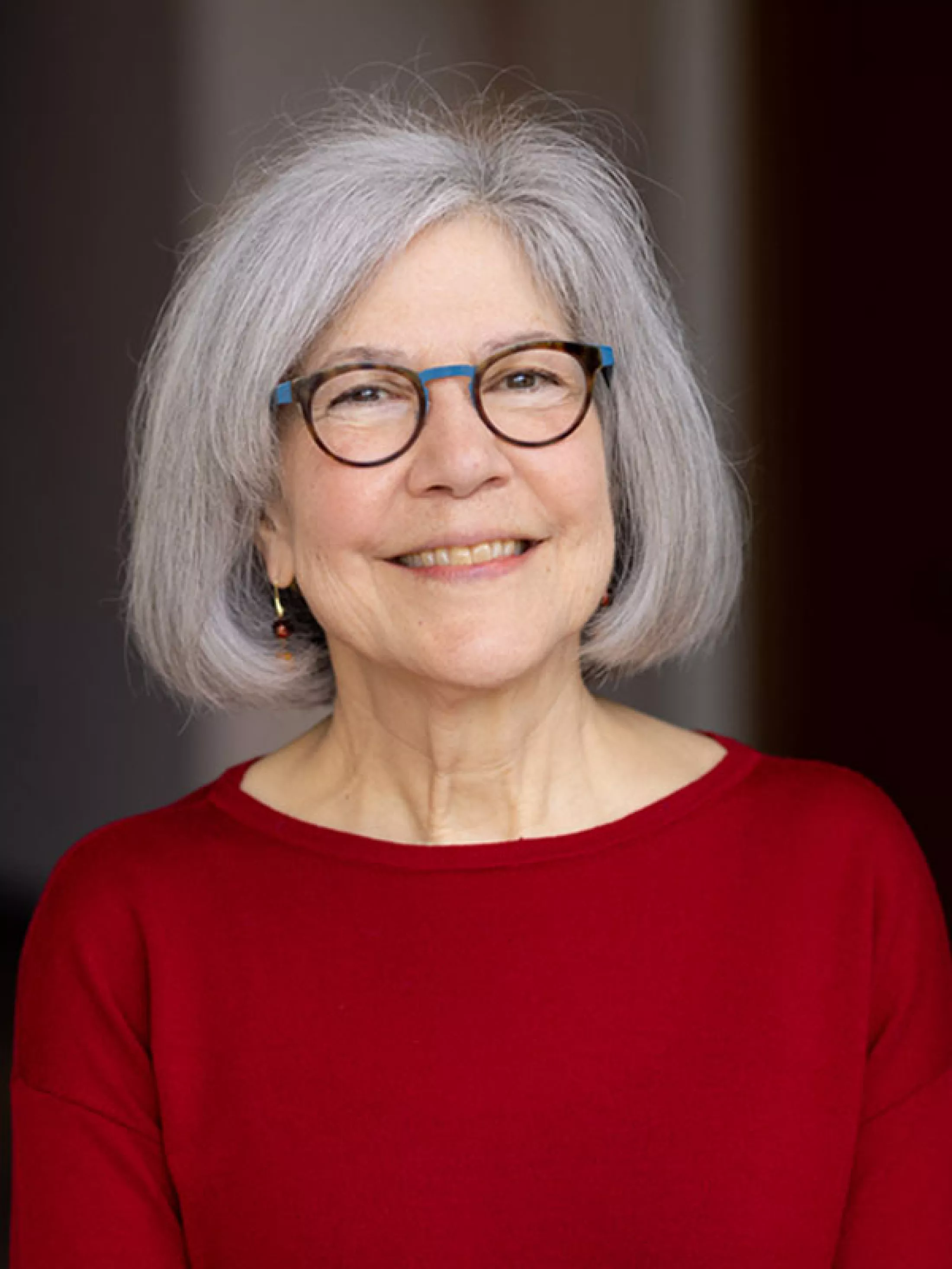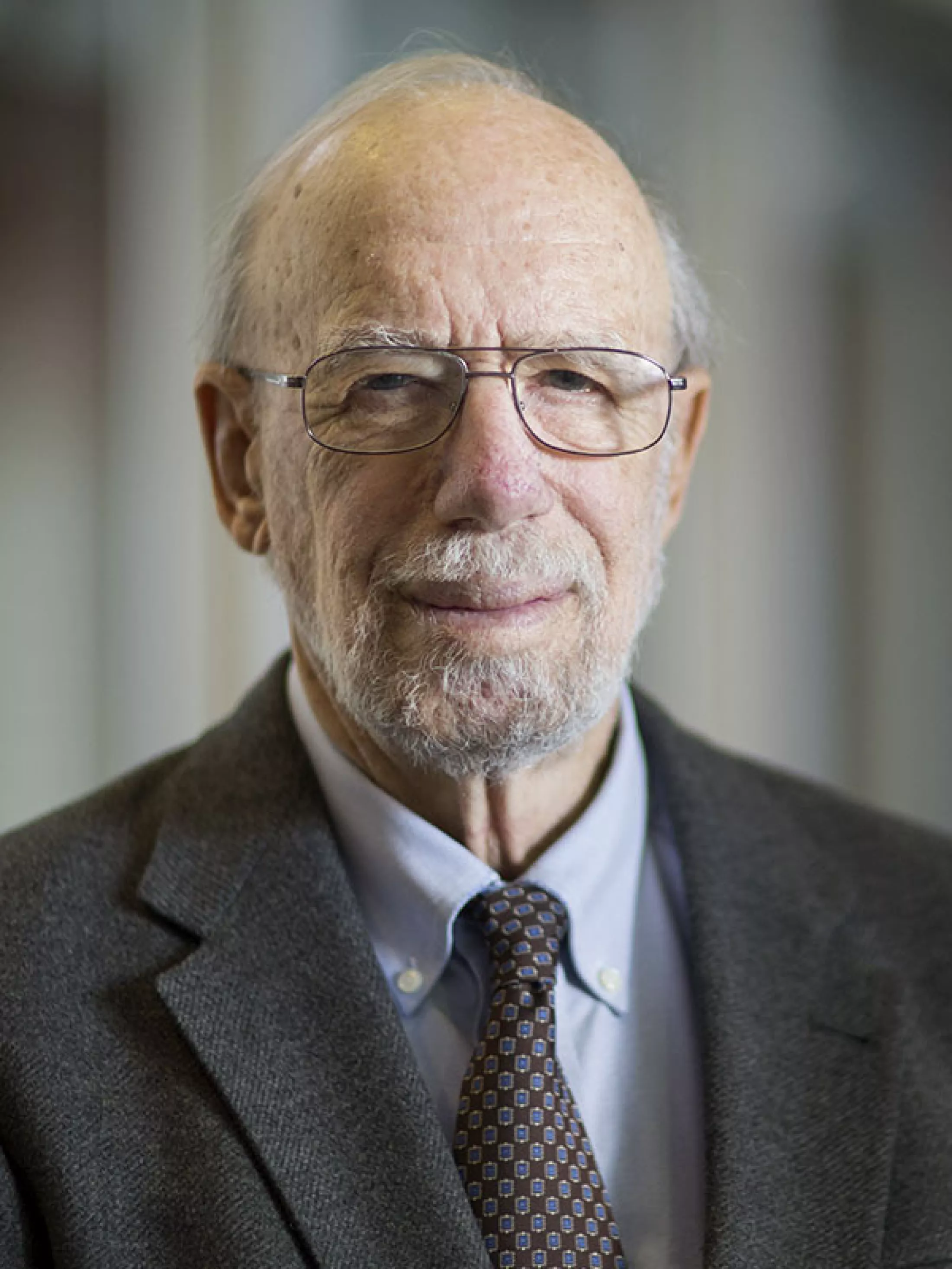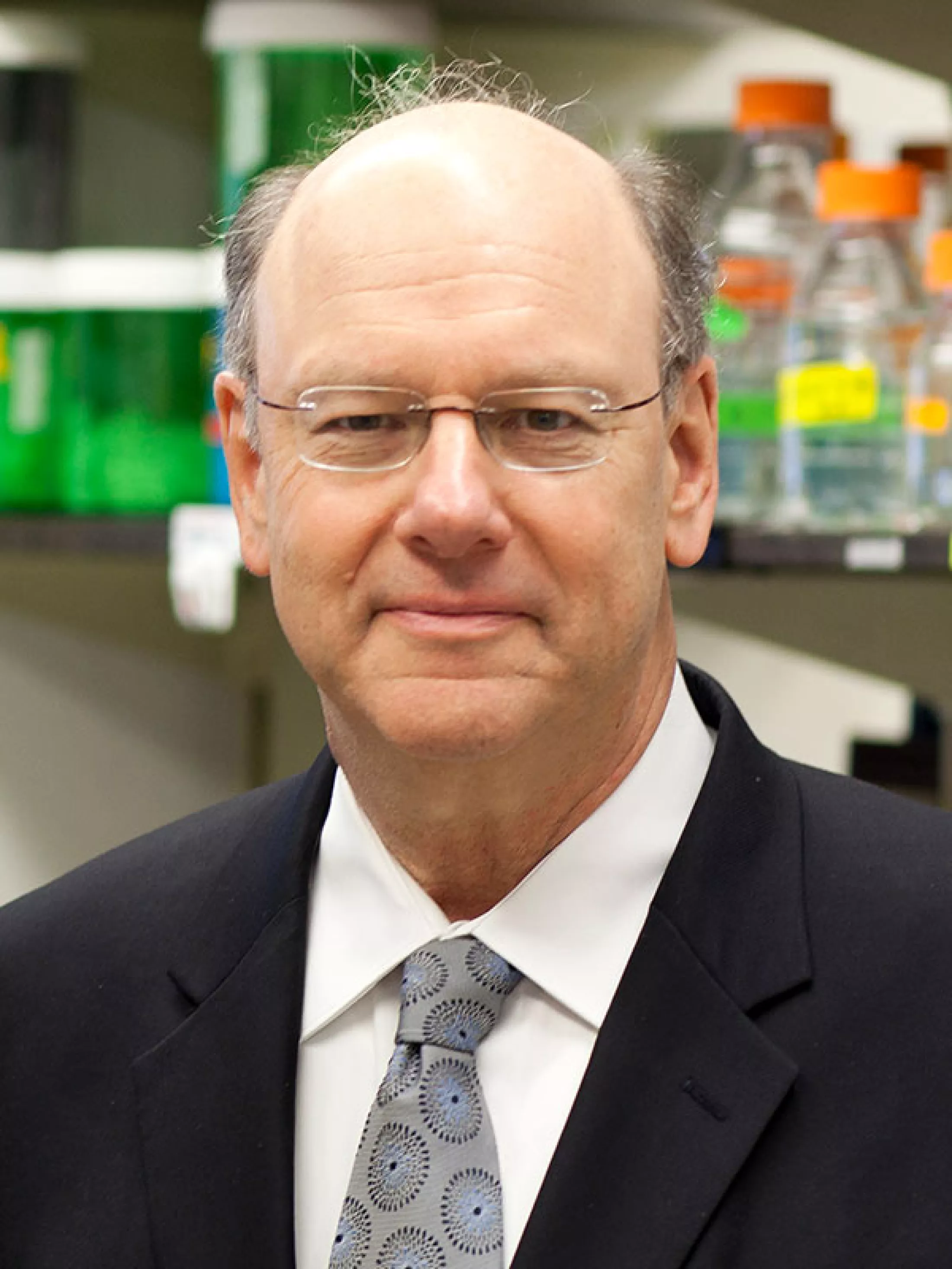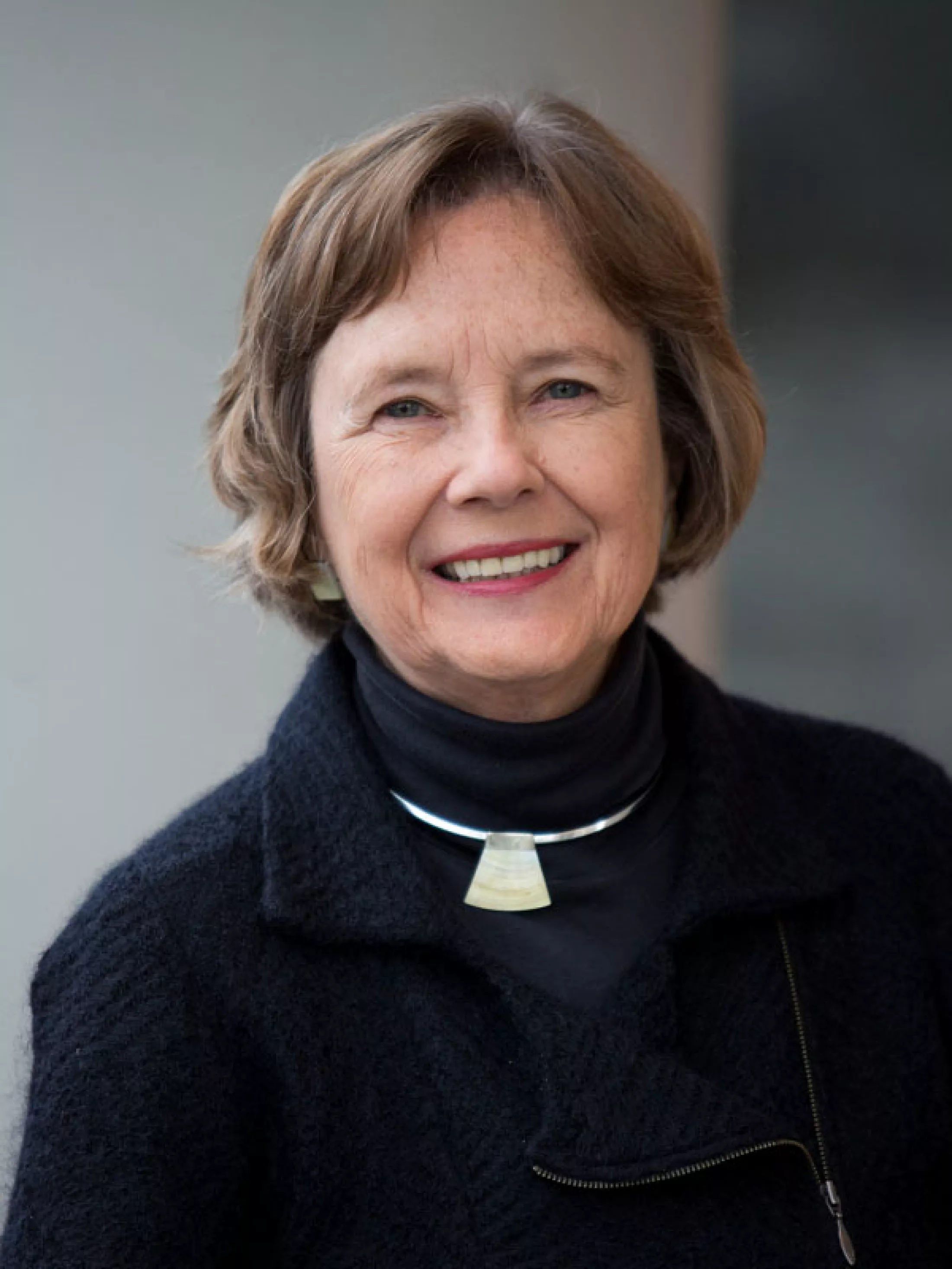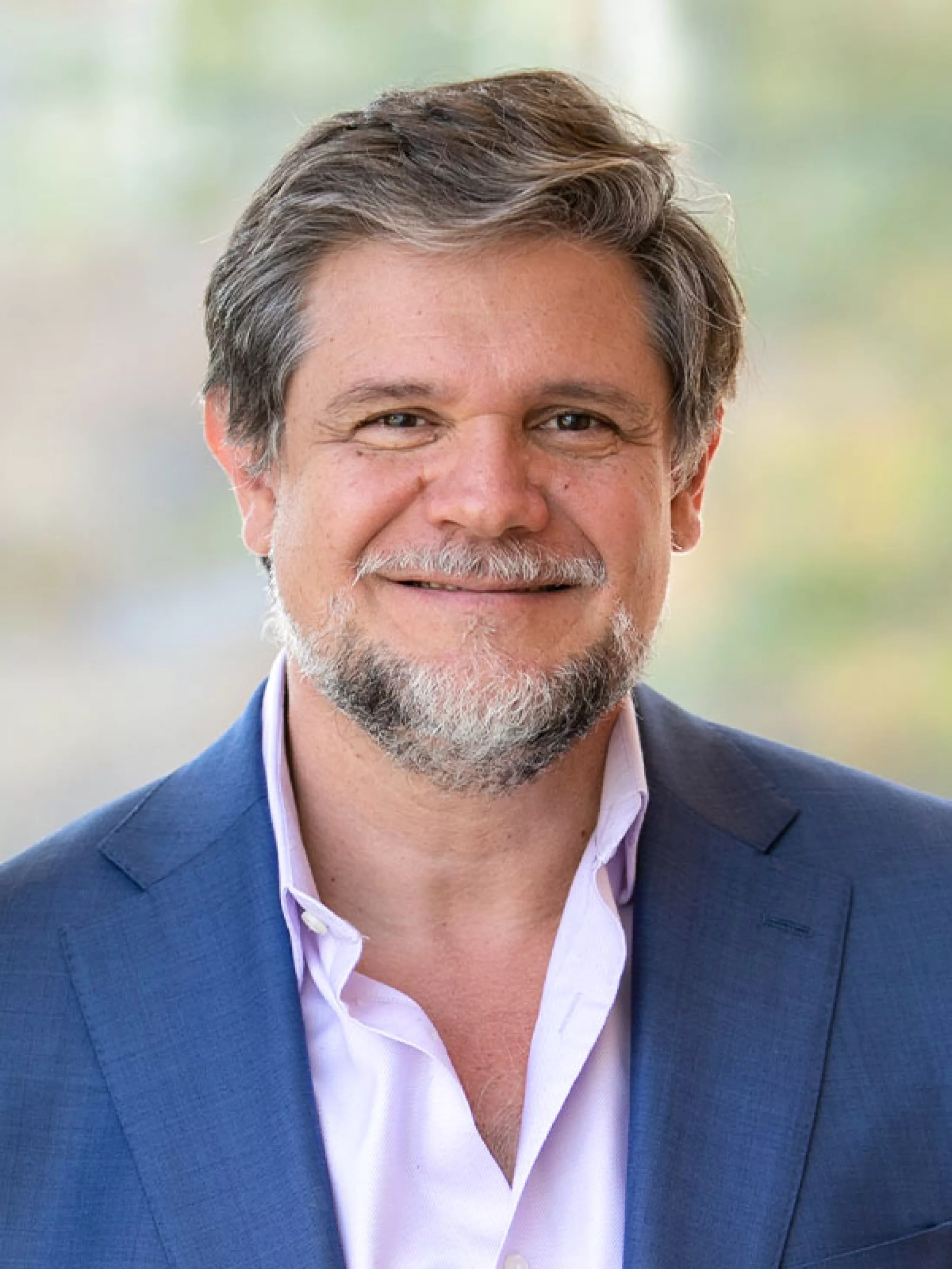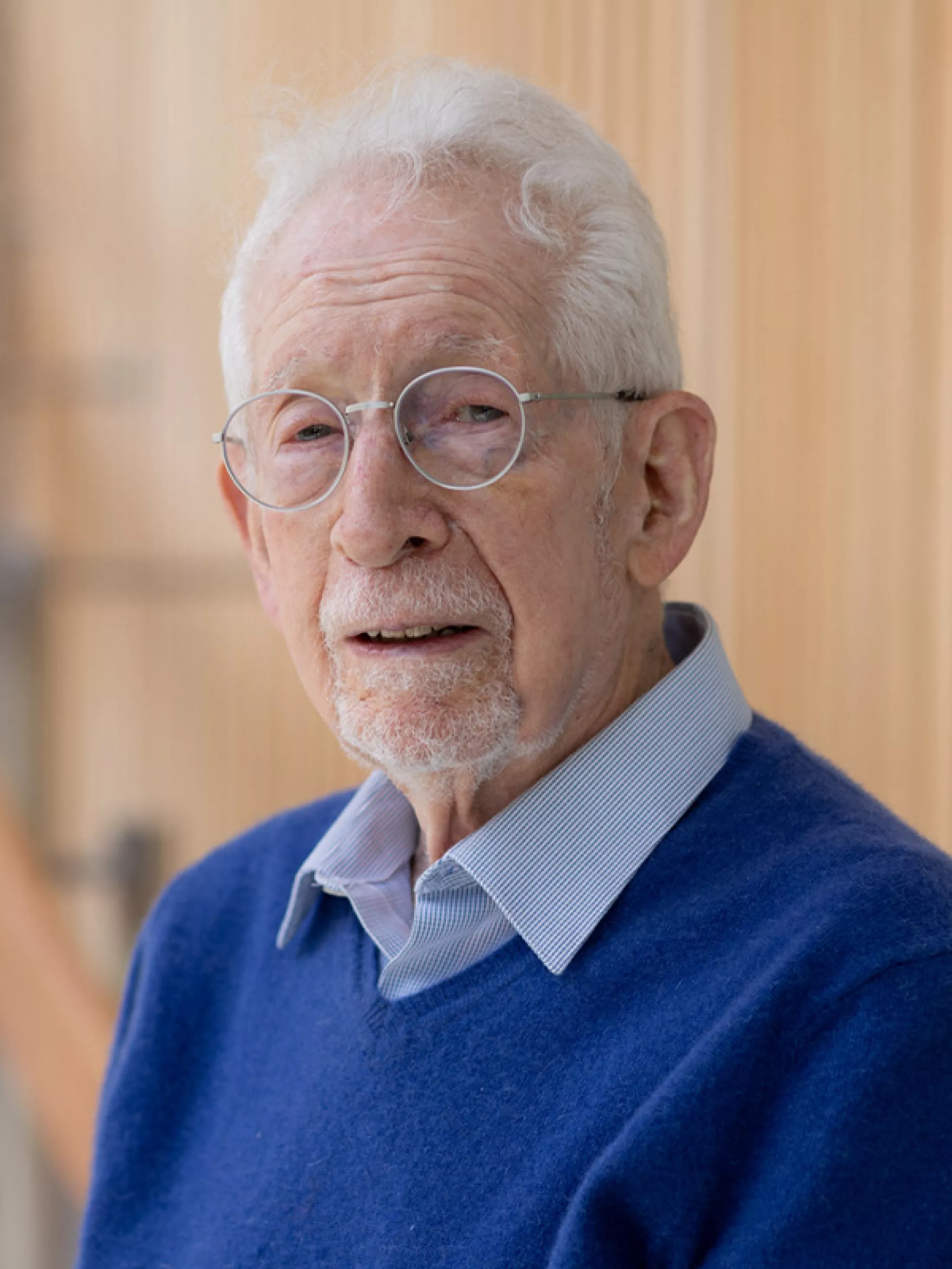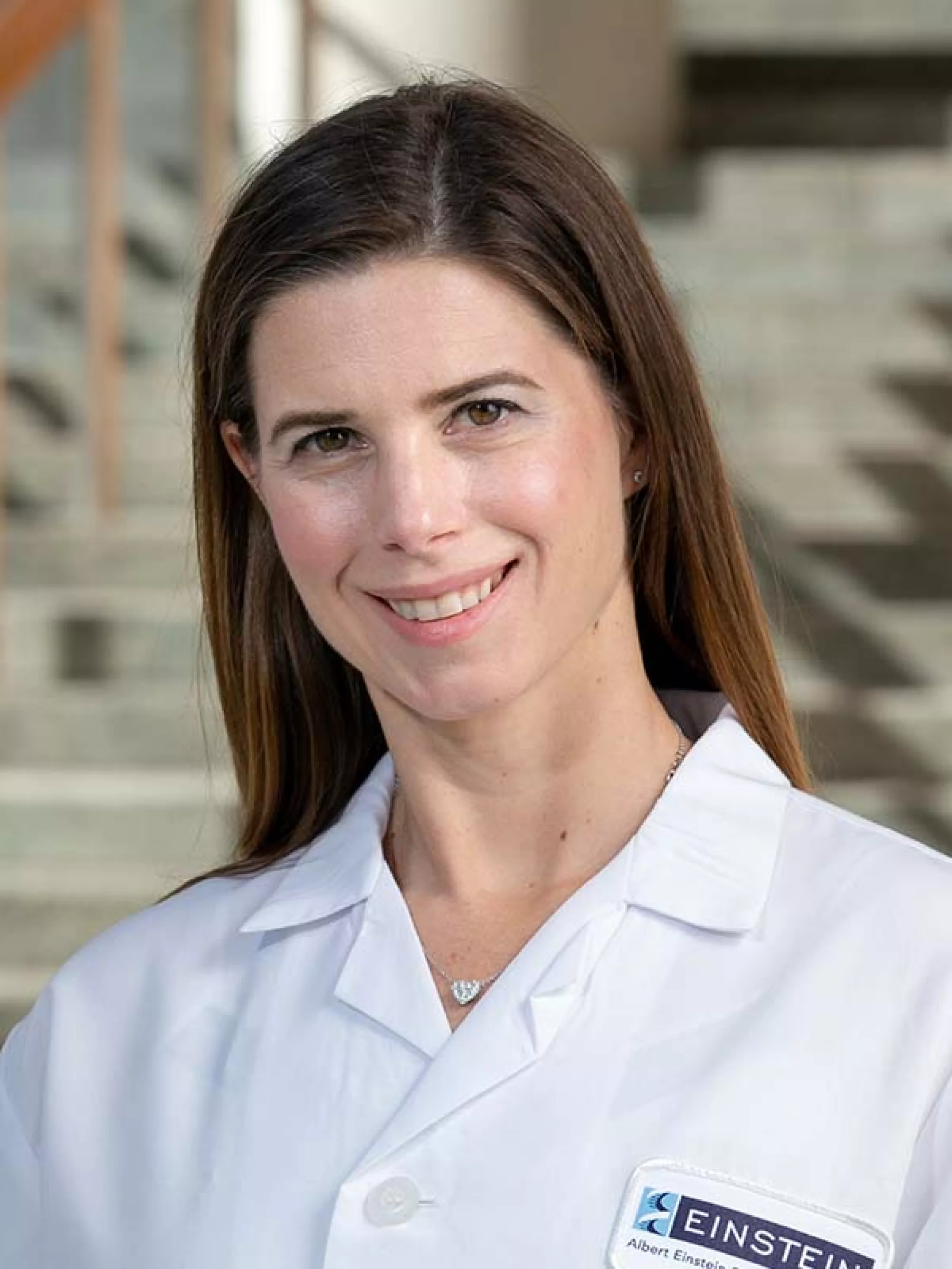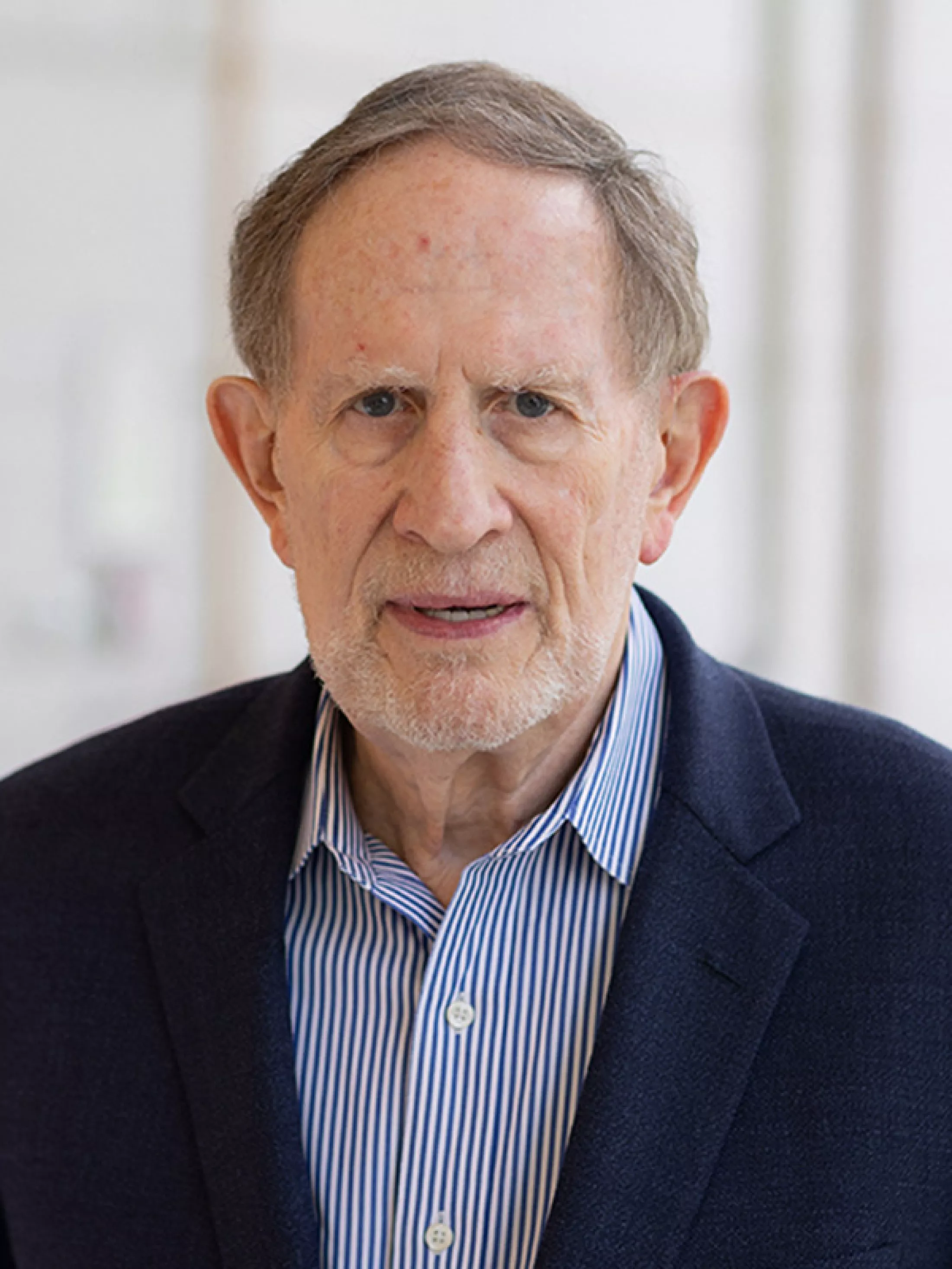Awards & Honors
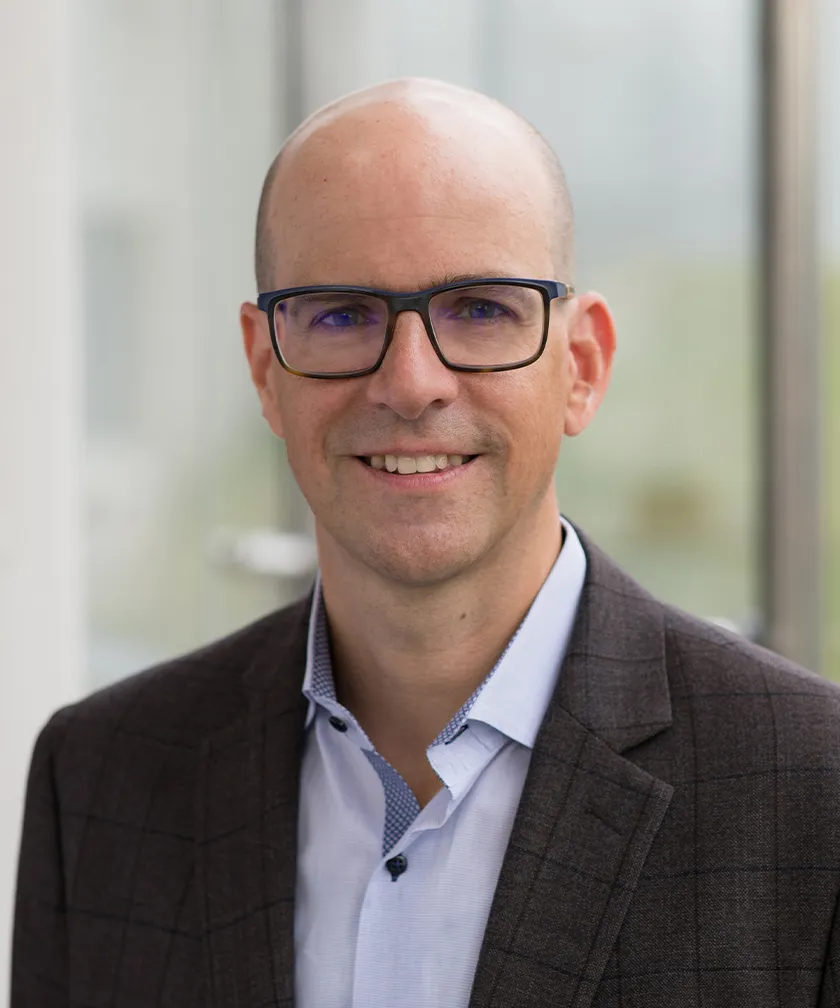
Dr. Ulrich Steidl
Ulrich Steidl, M.D., Ph.D., at Albert Einstein College of Medicine Elected to Association of American Physicians
Ulrich Steidl, M.D., Ph.D., professor and chair of cell biology at Albert Einstein College of Medicine and deputy director at the National Cancer Institute-designated Montefiore Einstein Comprehensive Cancer Center, has been elected a member of the Association of American Physicians (AAP), a prestigious 140-year-old honorary society dedicated to advancing medical knowledge through basic and clinical science.
The AAP announced its newest members on April 26. According to the association, membership selection “is an indication of the pre-eminence and the highest caliber of physician-led science accomplishments and scientific leadership.”
Dr. Ulrich Steidl Receives the 14th Annual Marshall S. Horwitz, M.D. Faculty Prize for Research Excellence. Link: https://events.montefioreeinstein.org/event/the-14th-annual-marshall-s-horwitz-md-faculty-prize-for-research-excellence
Drs. Steidl and Bowman Named ISEH Award Winners.
Congratulations to Ulrich G. Steidl, M.D., Ph.D., and Teresa V. Bowman, Ph.D., on being named recipients of the 2025 International Society for Experimental Hematology Awards. Dr. Steidl is honored for his outstanding contributions to the field, while Dr. Bowman is being recognized for her mentorship of students and fellows. The awards will be presented in September at the ISEH 54th Annual Scientific Meeting. More about Drs. Steidl and Bowman's research and accomplishments can be found at the ISEH Awards page: https://www.iseh.org/page/Awards
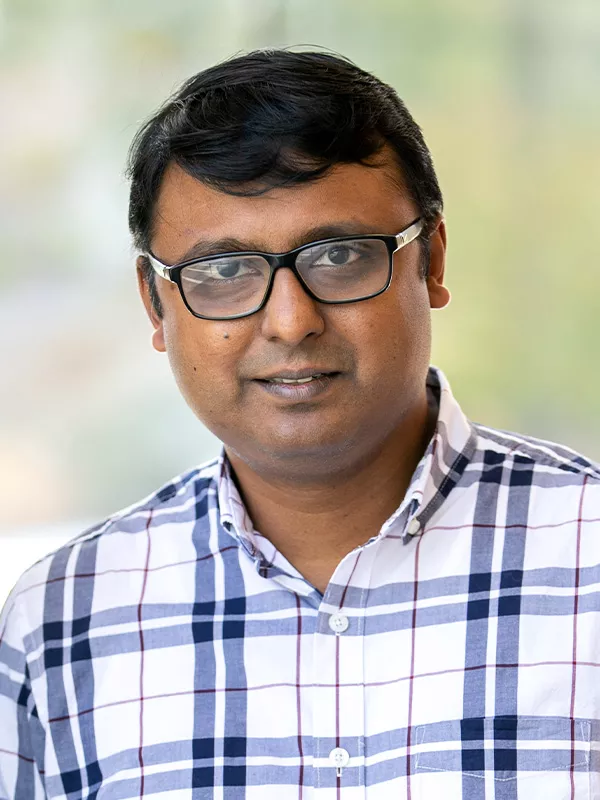
Dr. Satish Nandakumar
Satish Nandakumar, Assistant Professor of Cell Biology, was recently awarded a pilot grant of $100,000 from the Henry and Marilyn Taub Foundation for his studies on the role of antigen presentation in clonal expansion of blood forming stem cells in myelodysplastic syndromes (MDS). This study will explore a novel mechanism based on clues from human genetic studies on clonal hematopoiesis, a precursor state that often precedes MDS. Dr. Gregoire Lauvau, Professor of Microbiology & Immunology is a co-investigator in this project.
Dr. Lindsay LaFave
Dr. LaFave receives two lung cancer foundation grants from the A Breath of Hope Foundation and the Lung Cancer Research Foundation.
Dr. LaFave has been awarded two foundation grants and a special award to support lung cancer research projects in her lab. In the A Breath of Hope Peg’s Fight for Life grant, Dr. LaFave and her team will investigate differences in immunotherapy responses in KRAS and EGFR mutant lung tumors using genetically engineered mouse models and patient samples. This study will determine why EGFR mutant lung tumors are less responsive to immunotherapy than KRAS mutant tumors. Dr. LaFave received a second foundation grant from the Lung Cancer Research Foundation (LCRF) to investigate how chromatin state impacts immunity in lung tumors that arise in individuals with and without a smoking history. This research aims to identify the key chromatin regulators that impact immunity in smokers and never smokers and will provide insight to improve treatment approaches for lung cancer. For her LCRF proposal, Dr. LaFave was also awarded the prestigious William C. Rippe award for Distinguished Research in Lung Cancer. This award is given to the investigator “whose proposal not only demonstrated exceptional scientific merit but also exemplified an enduring commitment to making an impact in the field of lung cancer research”.
Dr. Julio Aguirre-Ghiso, Ph.D.
Dr. Aguirre-Ghiso, Rose C. Falkenstein Chair in Cancer Research and Professor of Cell Biology and Oncology is recognized by an award from the University of Colorado Comprehensive Cancer Center. During a recent visit to the University of Colorado Anschutz Medical Campus to Deliver a Cancer Center Symposium Series Seminar on "Mechanisms of Cancer Dormancy and Reactivation" Dr. Aguirre-Ghiso was awarded a “Cancer Warrior Award” in recognition for “his outstanding contributions and achievements in cancer research and for his devotion to training future cancer warriors”. The Award was delivered by Dr. James DeGregori who is Deputy Director of the University of Colorado Cancer Center and Professor in the Department of Biochemistry and Molecular Genetics (faculty since 1997) and holds the Courtenay and Lucy Patten Davis Endowed Chair in Lung Cancer Research.
Dr. Pamela Stanley
Dr. Pamela Stanley is an editor and senior author of 8 chapters in the textbook “Essentials of Glycobiology” published by Cold Spring Harbor Laboratory Press in 2022, now in its 4th edition. The group of editors and authors of all 4 editions of EoG received the Distinguished Service Award from the Society of Glycobiology at its annual meeting on Amelia Island, Florida in November 2024. The award is for service to the scientific community in general, and in particular to the community of glycobiologists, for providing a comprehensive textbook which is freely available online at NCBI books upon publication. All proceeds from sales of the print version of the textbook go to a non-profit established by the group of editors to support the publication of next editions of the book. Pamela Stanley was recently elected President of the Consortium of Glycobiology Editors (CGE).

Dr. Satish Nandakumar
Dr. Nandakumar receives a prestigious research grant from the Edward P. Evans Foundation!
Dr. Nandakumar has been awarded the prestigious Edward P. Evans Foundation Discovery Research Grant to support his research on germline predisposition to clonal hematopoiesis (CH) and its progression to myelodysplastic syndromes (MDS). Over the next three years, his team will utilize multiplex genome editing technologies in human hematopoietic stem cells to test hundreds of germline somatic mutation combinations and identify critical gene interactions that underlie formation of premalignant stem cell clones. The studies will examine how these premalignant clones are transformed into MDS cancer stem cells that stop producing red blood cells which is a serious problem for MDS patients. Knowledge gained from this research could enable the development of new treatments that target CH clones and prevent MDS development.
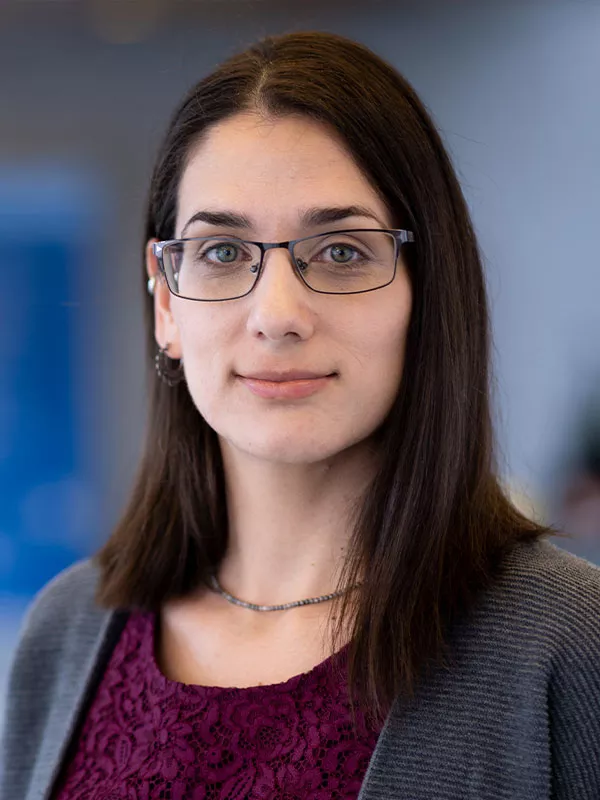
Dr. Maria Marianovich
Dr. Marianovich receives her first NIH R01!
Dr. Maria Marianovich, an Assistant Professor in the Department of Cell Biology, was awarded a five-year, $3 million R01 grant from the National Heart, Blood, and Lung Institute (NHLBI) of the National Institutes of Health (NIH) to study the effects of aging on hematopoiesis. Using novel genetic models and sophisticated bone marrow imaging methodologies, Dr. Marianovich and her team will investigate how the autonomic nervous system controls components of the hematopoietic stem cell niche in the bone marrow to regulate aging of the blood system. The overall goal of this study is to identify new mechanisms of hematopoietic aging that can be targeted for the development of rejuvenation therapies.
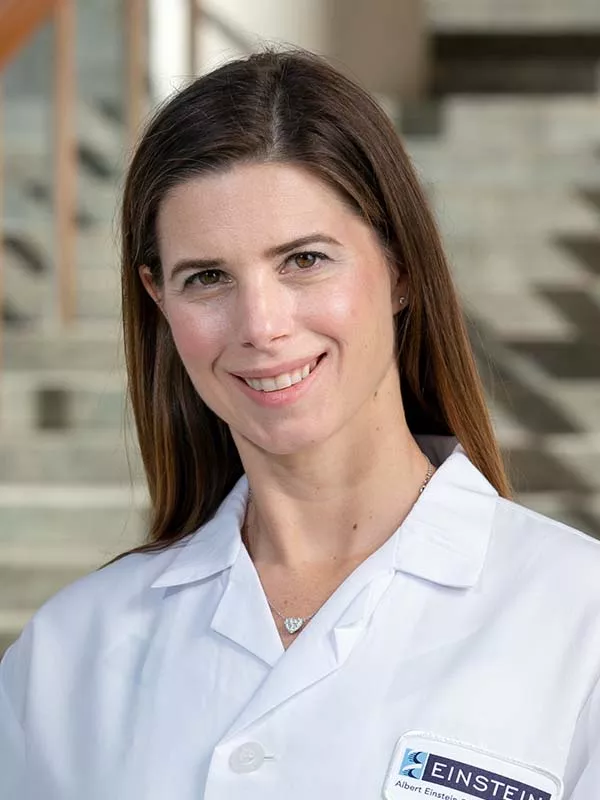
Dr. Kristy Stengel
Dr. Kristy Stengel receives her first NIH R01!
RUNX1 is a critical regulator of gene expression programs driving hematopoietic development. Consistently, germline loss-of-function RUNX1 mutations in people are associated with a familial platelet disorder that predisposes individuals to the development of myeloid malignancy (RUNX1-FPDMM). Therefore, detailed mechanisms of RUNX1-mediated gene regulation will greatly improve our understanding of both blood development and hematopathology. Kristy Stengel, Assistant Professor of Cell Biology, was recently awarded a 4-year R01 from the National Heart, Lung, and Blood Institute to use novel strategies of rapid RUNX1 protein degradation to define the kinetic features of RUNX1 activity throughout hematopoietic development. These studies will lead to a better understanding of how RUNX1 alters gene expression networks to drive cell fate decisions.
Drs. Wenjun Guo & Keisuke Ito
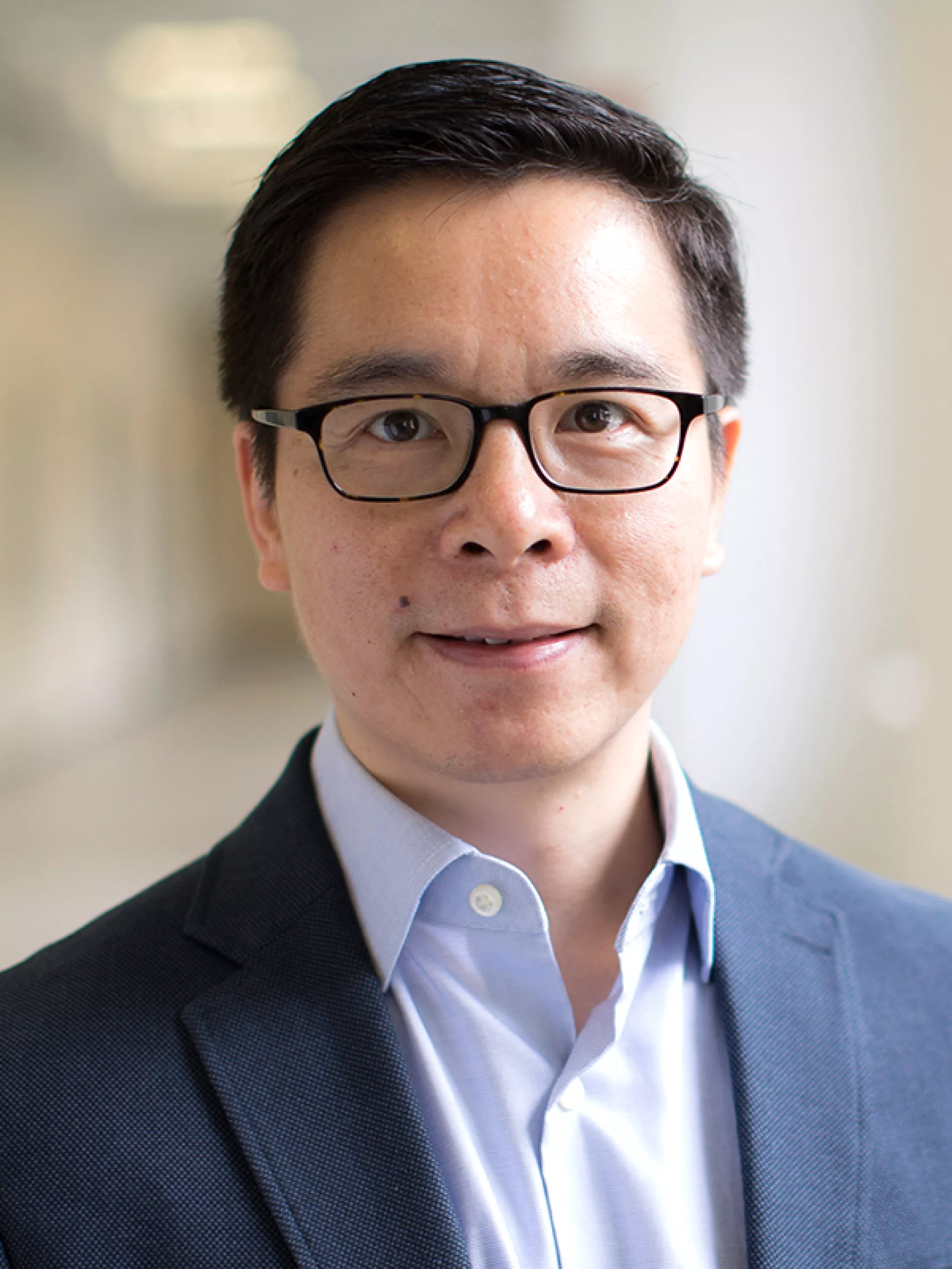
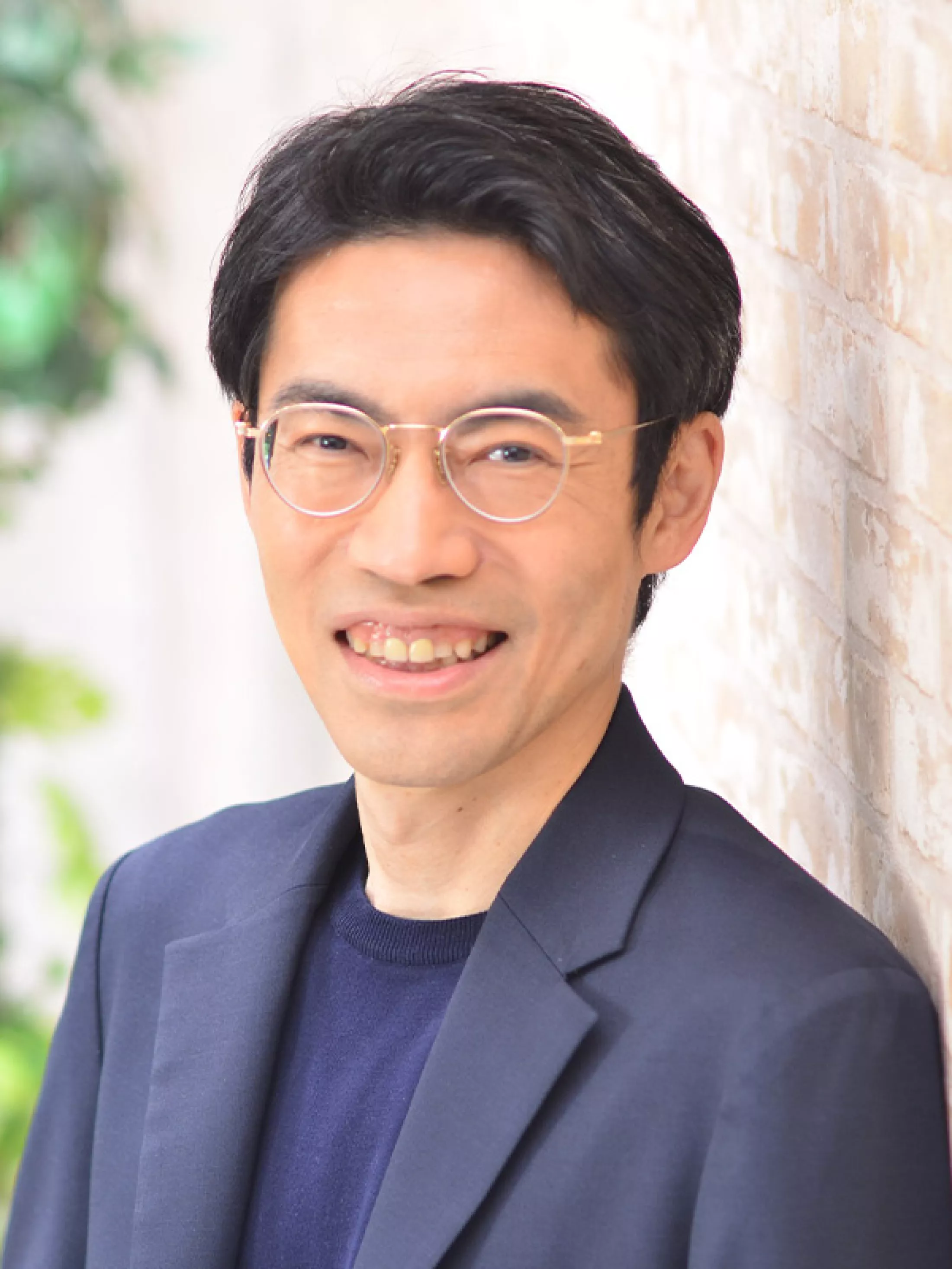
The Department of Cell Biology is celebrating the promotion of two of our faculty members to full Professorship with tenure. Congratulations to Dr. Wenjun Guo and Dr. Keisuke Ito! This is a highly deserved recognition that reflects their outstanding expertise and accomplishments in their fields of study as well as their significant contributions to the missions of our medical school.
Dr. Guo received his Bachelor of Science from Nankai University, followed by a Ph.D. from Weill Cornell Medical School / Sloan-Kettering Institute, New York. In 2005, he joined the laboratory of Dr. Robert A. Weinberg at the Whitehead Institute for his postdoctoral training. In 2011, Dr. Guo was recruited by the then newly established Ruth L. and David S. Gottesman Institute for Stem Cell and Regenerative Medicine Research and joined the Cell Biology faculty as an Assistant Professor. His research interests are in cellular plasticity in cancer progression and metastasis.
After earning both his M.D. and Ph.D. degrees from Keio University, Japan, Dr. Ito came to the United States in 2006 for his postdoctoral training at the Memorial Sloan Kettering Cancer Center. In 2012, Dr. Ito was recruited to Einstein from Harvard Medical School, where he was an Instructor in Medicine, to join Cell Biology and the newly established Ruth L. and David S. Gottesman Institute for Stem Cell and Regenerative Medicine Research as an Assistant Professor. Dr. Ito’s research program focuses on hematopoietic homeostasis, covering a variety of topics ranging from stem cell fate decisions to myelodysplastic syndrome, leukemia, and sickle cell disease pathogenesis.
Once again, the warmest congratulations to Drs. Guo and Ito! We truly appreciate your hard work and dedication to the department and the Einstein community.
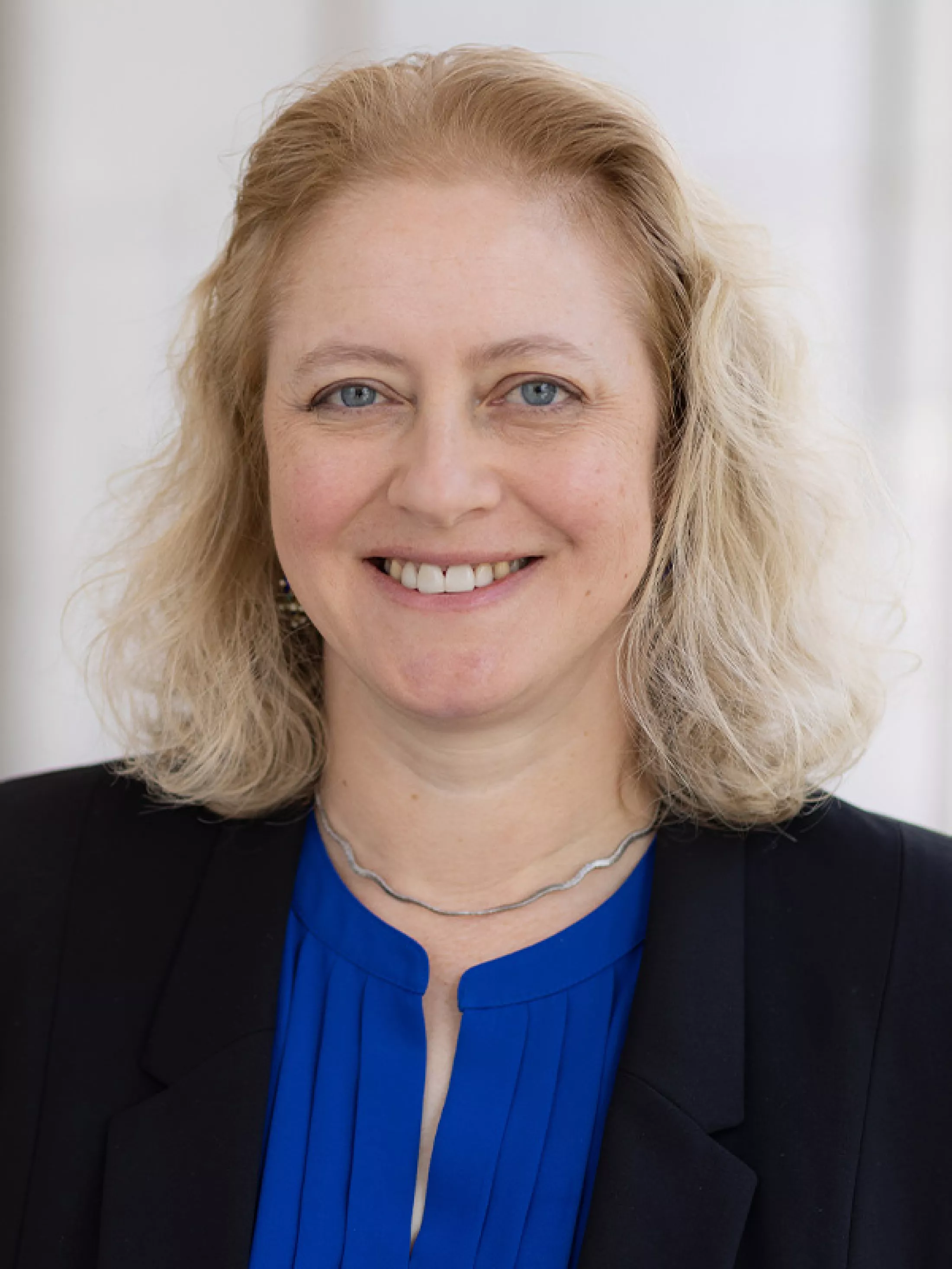
Dr. Kira Gritsman
In a remarkable achievement that reflects her outstanding accomplishments as a physician scientist, Dr. Kira Gritsman, co-leader of the Montefiore Einstein Comprehensive Cancer Center Stem Cell & Cancer Biology Program and recently named Betty and Sheldon Feinberg Senior Faculty Scholar in Cancer Research, has been elected as an Active Member of The American Society for Clinical Investigation (ASCI) for the year 2024. This news comes as part of the ASCI's announcement, where 100 Active and International members were elected to represent academic excellence across 50 different institutions. This recognition underscores Dr. Gritsman's significant contributions to academic medicine, making her a source of pride for Einstein's Cell Biology department. Dr. Gritsman will officially join this esteemed group at the ASCI Dinner and New Member Induction Ceremony on April 5, 2024, during the AAP/ASCI/APSA Joint Meeting at the Swissotel Chicago. ASCI, established in 1908, is one of the oldest and most respected medical honor societies in the United States. Congratulations, Dr. Gritsman!
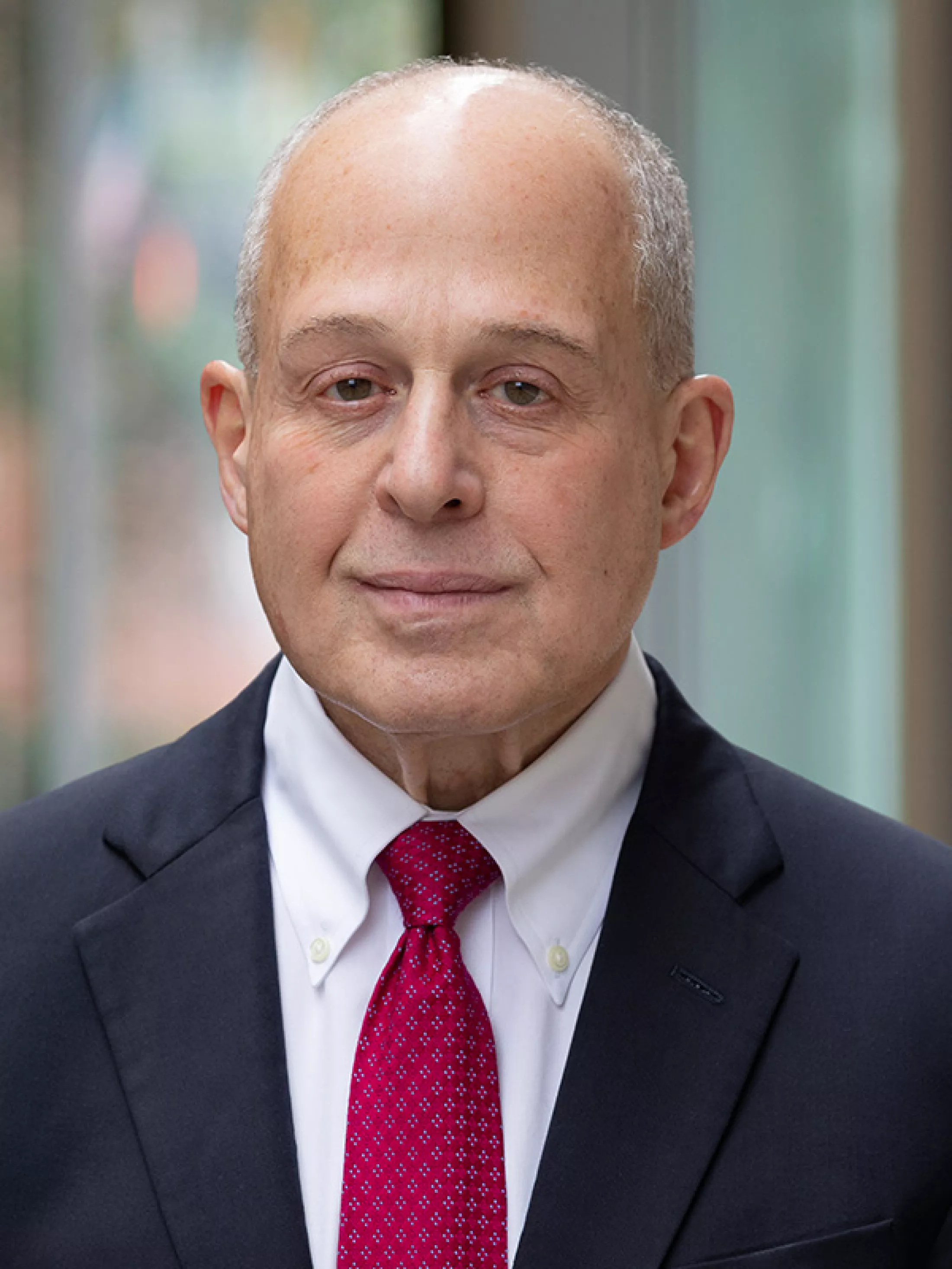
Dr. Richard Kitsis, M.D
Richard N. Kitsis, M.D., Awarded Schottenstein Prize from The Ohio State University
Cell biologist and cardiac researcher Richard N. Kitsis, M.D., has been selected to receive the 2023 Jay and Jeanie Schottenstein Prize in Cardiovascular Sciences of The Ohio State University in recognition of his “extraordinary and sustained contributions” to cardiovascular research. Dr. Kitsis, who is professor of medicine and of cell biology, the Dr. Gerald and Myra Dorros chair in cardiovascular disease, and director of the Wilf Family Cardiovascular Research Institute at Einstein, will receive the prize and a $100,000 honorarium at a ceremony on November 14 at the Ohio State University campus in Columbus, Ohio.
Richard Kitsis, M.D. – Elected for distinguished contributions to fundamental and translational aspects of cell death, particularly for originating and driving the field of cell death in the heart. Dr. Kitsis is Professor of Medicine and of Cell Biology, the Dr. Gerald and Myra Dorros Chair in Cardiovascular Disease and Director of the Wilf Family Cardiovascular Research Institute at Einstein and attending physician, cardiology at Montefiore Medical Center.
Dr. Lindsay LaFave
Congratulations to Dr. Lindsay LaFave for receiving 3 top awards in a row!
Since midsummer Dr. LaFave has been honored with a remarkable number of prestigious awards and grants: MECCC’s Dempsey Scholar Award, AACR Career Development Award in Lung Cancer Research, and the V Foundation's 2023 V Scholar Program. Dr. LaFave’s research program aims to elucidate the mechanisms of lung cancer progression by characterizing cellular diversity and plasticity based on the dynamic changes in the epigenetic landscape.
Dr. Robert Coleman
Congratulations to Dr. Robert Coleman for a prestigious Chan Zuckerberg Initiative grant! This 2-year award will fund a team of Einstein researchers led by Dr. Rob Coleman that includes Dr. Louis Hodgson in the Department of Molecular Pharmacology and Dr. Vlad Verkhusha in the Department of Genetics. The Einstein team will be a part of an international consortium of research groups that will be examining Metabolism Across Different Scales. The Einstein team will develop optogenetic tools and metabolite biosensors that provide new insights into dynamic gene expression mechanisms controlling key cellular events, including circadian rhythm. More information about the award and other related funded projects can be found here.
In close collaboration with Dr. Amit Verma (DMB), Uli has created a highly unique and successful environment and fostered a growing team of basic and translational investigators conducting MDS or MDS-related research inside and outside of our department. This “MDS Team” includes Drs. Kristy Stengel, Britta Will, Keisuke Ito, Kira Gritsman, Satish Nandakumar, and Maria Maryanovich from our department of Cell Biology, as well as Teresa Bowman, Aditi Shastri (both DMB), and Marina Konopleva (MolPharm) – some of whom have been awardees of EvansMDS research funding . They are joined by an exceptional clinical team including Drs. Eric Feldman, Mendel Goldfinger, Ioannis Mantzaris, and others at Montefiore. Uli and Amit’s efforts were internally recognized and honored by the creation of the Blood Cancer Institute at Montefiore Einstein in 2021.
We are deeply thankful to the Edward P. Evans Foundation for generously supporting Uli’s vision and are beyond proud of this external recognition of his outstanding leadership in biomedical sciences. This is another great example of how highly impactful and rewarding team science reaches far beyond departmental borders at Einstein and Montefiore!
Congratulations, Uli – and keep going, MDS Team!!
On June 15, 2022, Drs. Uli Steidl and Amit Verma, longtime collaborators in the field of hematopoietic stem cells, myelodysplastic syndromes, and myeloid leukemias, presented the Montefiore Einstein Presidential Lectures. Established in 2017, this distinguished lecture series celebrates scientific excellence and the full spectrum of biomedical research at Einstein, and is normally presented by two faculty members working in the basic science and clinical investigation arena, respectively. Dr. Steidl’s lecture is entitled “Understanding the Molecular and Cellular Pathogenesis of Myeloid Malignancies at the Stem Cell Level,” and Dr. Verma’s lecture is entitled “Therapeutic Targeting of MDS and AML.” More info on this award and Drs. Steidl and Verma’s highly innovative work can be found at:
https://www.einsteinmed.edu/docs/intranet/e-blasts/presidential-lecture-program-2022.pdf Congratulations Uli and Amit!
Dr. Ulrich Steidl hit another milestone in his illustrious career in leukemia research. The Dean recently announced that the Einstein Board of Trustees has approved Dr. Steidl as the Rose C. Falkenstein Chair of Cancer Research. Mrs. Rose Falkenstein is an Einstein Benefactor who established the Rose C. Falkenstein Chair in Cancer Research through a generous bequest following her death in 1987. The gift supports a professorial chair in perpetuity to advance the urgent needs of cancer research at Einstein Congratulations Uli!
Congratulations to Dr Ulrich G. Steidl who has just received a prestigious, sevenyear Outstanding Investigator Award from the NCI to study the molecular and cellular mechanisms that lead to myelodysplastic syndromes (MDS) and acute myeloid leukemia (AML). Dr. Steidl is one of only 17 recipients of this NCI award in 2021, which is given to accomplished leaders in cancer research who provide significant contributions in their field. The ultimate goal of Dr Steidl's research is to develop new treatments and cures for these usually fatal disorders. Dr Steidl is a Professor of Cell Biology and Medicine, and was recently named co-director of the Blood Cancer Institute and associate director of basic science at the Albert Einstein Cancer Center (AECC). The school's web site has more complete coverage of this exciting news .
At the commencement on Wednesday, June 3, 2020, the College of Medicine presented a faculty research award — the Saul R. Korey Award for Translational Medicine and Science — to Dr. Ulrich Steidl. The award was established to honor the memory of Einstein's founding chair of Neurology Dr. Saul R. Korey, who left a profound legacy and influence at the medical school and beyond with regard to neurology, neuroscience and translational medicine. This award recognizes a faculty member who exemplifies Dr. Korey's philosophy of translating basic science knowledge to clinical medicine through innovative and collaborative research.
Dr. Ulrich Steidl's selection for this award is well-deserved. Since joining the Einstein faculty in 2008, Dr. Steidl has led a flourishing research program that started from the initial focus on transcriptional regulation of AML to clonal evolution of pre-leukemic stem cells and genetic regulation at the single cell level. Along the way, he and his colleagues have made a number of very important discoveries in this field and developed novel, mechanism-based therapeutic approaches. Some of those have entered clinical testing or preclinical commercial development and post significant translational potential.
The Department of Cell Biology would like to extend our warmest congratulations to Dr. Ulrich Steidl on receiving the inaugural 2019 Scholar Achievement Award of the Leukemia & Lymphoma Society! Dr. Steidl is well known for his innovative research and collaborative approach to science. Dr. Steidl has produced an impressive publication record in high impact journals, including papers on precancerous and leukemic stem cells and leukemic progression, as well as critical information regarding the role of myeloid transcription factors in leukemia. He is also developing and testing new drugs to clinically translate these studies to help MDS and AML patients.
Congratulations! Dr. Ulrich Steidl, Associate Professor in the Department of Cell Biology and Medicine, has been honored with election to the prestigious American Society for Clinical Investigation (ASCI). The society was established in 1908 and is one of the nation's oldest and most respected medical honor societies. https://www.the-asci.org/about.shtml.
Dr. Britta Will
Dr. Britta Will has been named as the new Diane and Arthur B. Belfer Scholar in Cancer Research. This endowed professorship was first established by the late long-time Einstein research supporters and Board members Mr. and Mrs. Belfer in 1998. It supports innovative basi c and translational cancer research, and honors key contributions Britta and her team have been making to aid in understanding and targeting of leukemic stem cells in myeloid malignancies. Congratulations to Britta and the Will lab!
Congratulations! Dr. Britta Will, Assistant Professor in the Departments of Medicine (Oncology) and Cell Biology, is a winner of the Michael Price Seeds of Science Award in its inaugural year. This award was established by the Price Family Foundation Fund. One of the two grants awarded this year will support Dr. Will and her collaborator, Dr. David Loeb, Chief of Pediatric Hematology-Oncology at the Children's Hospital at Montefiore, in their mechanistic studies of pediatric acute myeloid leukemia. Their planned work will focus on the molecular and physiological role played by chaperone-mediated autophagy, a process that cells use to get rid of damaged or surplus proteins, particularly under stress.
Dr. Barbara Birshtein
Congratulations to Dr. Barbara Birshtein on her receiving the 2018 Basic Science Faculty Mentoring Award! This is truly a well-deserved recognition, the latest in a long list of distinctions that Barbara has received in her career. The Ceremony will be held on December 19 at 4:30 PM in Price, please join us to celebrate with Barbara.
Dr. Barbara Birshtein has been selected as this year’s recipient of the LaDonne H. Shulman Award for Excellence in Teaching. The recipient of this award is nominated and selected by the graduate students as a faculty member who has demonstrated exemplary skill in teaching and mentoring. Of special note: This is the second time that Barbara has received this award! Congratulations to Barbara on this very appropriate recognition of her dedication and teaching and mentoring skills by the graduate students.
Election to fellow is an honor bestowed upon American Association for the Advancement of Science (AAAS) members by their peers. In 2014, 401 AAAS members were awarded this honor because of their scientifically or socially distinguished efforts to advance science or its applications. Among the six AECOM faculty members who received this distinction, three are members of the Department of Cell Biology.
Dr. Margaret Kielian
Dr. Margaret Kielian, a leading expert in viral infection mechanisms, is the recipient of the 2019 Marshall S. Horwitz, M.D. Faculty Prize for Research Excellence. The community-wide ceremony will be held in Robbins Auditorium on Monday, March 11, 2019, at 4 p.m. The award presentation and lecture will be followed by a reception. Please join Dr. Kielian as she shares some of the most exciting findings on how alphaviruses and flaviviruses enter and exit the host cell. Her lecture is entitled: How Viruses Infect a Cell: Structure, Function and Inhibition of Virus Membrane Fusion Proteins. Congratulations, Dr. Kielian!
Dr. Kielian is the 5th faculty member from this department to receive this distinguished award since its inception 13 years ago. Previous recipients of the Marshall Horwitz Price include Dr. Matthew Scharff, Dr. Stanley Nathenson, Dr. Pamela Stanley, and Dr. Carl Schildkraut.
Margaret Kielian, Ph.D. – Elected for distinguished contributions to the field of virology, particularly for studies on the alphavirus and flavivirus membrane fusion proteins and on virus entry and exit. Dr. Kielian is Professor of Cell Biology and Samuel H. Golding
Dr. Matthew Scharff
Congratulations to Dr. Matthew Scharff on the occasion of his 90th Birthday Year!
The Department of Cell Biology is pleased to honor Dr. Scharff with this tribute video celebrating his outstanding career. It consists of contributions from some of Dr. Scharff’s Einstein colleagues and former trainees. Please view the video here: https://youtu.be/-oqTxFxlne0
Dr. Scharff is a Distinguished Professor of Cell Biology and the Harry Eagle Professor of Cancer Research. He joined the faculty of the Albert Einstein College of Medicine in 1963 and has served as Chair of the Department of Cell Biology and Director of the Albert Einstein Cancer Center. Dr. Scharff is a member of the United States National Academy of Sciences and the American Academy of Arts and Sciences. He has received many awards for his scientific accomplishments, his service to the scientific community, and his mentoring skills, including the 2015 Herzenberg Biolegend Award from the American Association of Immunologists. He has published more than 300 scientific papers and reviews and has trained 70 Ph.D. students and postdoctoral fellows.
Inaugural Honoree — The American Association of Immunologists (AAI) has selected Dr. Matthew Scharff as the first-ever recipient of its inaugural 2015 AAIBioLegend Herzenberg Award, which he will receive this spring during a special session at IMMUNOLOGY2015™. The honor recognizes an individual who has made exemplary research contributions to the field of B cell biology. Dr. Scharff is world-renowned as a pioneer in the development and application of monoclonal antibodies, which have become a cornerstone in biomedical research. He is distinguished professor of Cell Biology and of Medicine, as well as the Harry Eagle Chair in Cancer Research/National Women's Division and faculty supervisor of the Hybridoma and Tissue Culture Facility. The AAI-BioLegend Herzenberg Award was established, with support from BioLegend to honor the memory of AAI member Dr. Leonard A. Herzenberg.
Dr. Robert Singer, Ph.D
Dr. Singer received the Lewis S. Rosenstiel award at Brandeis University on April 6th. More info on the award and the star-studded list of past awardees can be found at: https://www.brandeis.edu/rosenstiel/rosenstiel-award/. His acceptance talk can be seen at https://ensemble.brandeis.edu/Watch/o3MEz42L.
Robert Singer, Ph.D. – Elected for distinguished contributions to the development and application of imaging technologies and insights into the kinetics and spatial distributions of single mRNAs in living cells. Dr. Singer is Professor and Co-Chair of Anatomy & Structural Biology, Professor of Neuroscience and of Cell Biology, Co-Director of the Gruss Lipper Biophotonics Center and of the Integrated Imaging Program, and the Harold and Muriel Block Chair in Anatomy & Structural Biology.
Dr. Pamela Stanley
On 5/6/2015, Dr. Pamela Stanley gave a lecture in the NIH Director's Wednesday Afternoon Lecture Series (WALS), which is the highest-profile lecture program at the NIH. Her lecture was entitled “ Glycans that regulate development and Notch signaling”.
On February 3, 2014, Dr. Pamela Stanley was awarded the 8 th Annual Marshall S. Horwitz Faculty Prize for Research Excellence. Congratulations to Dr. Stanley on this well-deserved distinction!
Dr . Julio Aguirre-Ghiso, Ph.D.
Julio Aguirre-Ghiso, Ph.D. , is the new Rose C. Falkenstein Chair in Cancer Research. Julio is an international leader in cancer cell dormancy and metastasis and has helped lead a major shift in the cancer biology field by investigating how cancer cells hibernate, undetected, for long periods of time and what causes them to suddenly awaken to seed deadly, treatment-resistant metastases. His work is revealing ways to maintain residual cancer-cell dormancy, kill dormant cancer cells, and identify biomarkers for cancer recurrence. Julio is co-leader of the Tumor Microenvironment and Metastasis Program and founding director of the Cancer Dormancy and Tumor Microenvironment Institute at the Montefiore Einstein Cancer Center (MECC), as well as professor of cell biology, of oncology, and of medicine.
Dr. Carl Schildkraut
Dr. Carl Schildkraut, a longtime member of the Cell Biology Department and a world-renowned expert in DNA replication, is the recipient of the 2018 Marshall S. Horwitz, M.D. Faculty Prize for Research Excellence. On Monday, March 12, Dr. Schildkraut will share some highlights from his exceptionally productive career in his award lecture. The award presentation, lecture, and the post-award reception will be held at Robbins Auditorium starting at 4 pm.
Dr. Kristy Stengel
Congratulations to Dr. Kristy Stengel on receiving the RUNX1 Early Career Investigator grant! This is a 3-year award designed to fund research leading to the development of therapies for patients with RUNX1-FPD. Loss-of-function and dominant negative germline mutations in RUNX1 cause familial platelet disorder with a predisposition to myeloid malignancy (RUNX1-FPDMM), yet the mechanism by which these mutations alter hematopoiesis and what events cooperate with germline RUNX1 mutation to drive progression to AML remain poorly defined. The funded project will use targeted protein degradation to identify RUNX1 functions relevant to RUNX1-FPD. In particular, the proposed studies aim to define RUNX1 gene expression networks, to determine the mechanism of RUNX1-mediated gene regulation at critical targets, and to determine the contribution of RUNX1-related DNA damage responses to RUNX1-FPD.
Dr. Arthur Skoultchi
The Department of Cell Biology would like to congratulate Dr. Arthur Skoultchi, Chairman of the Department, who is the recipient of the 2015 Faculty Mentoring Award. The ceremony will be held at 4:30PM, December 10, 2015, in Lubin Dining Hall.

